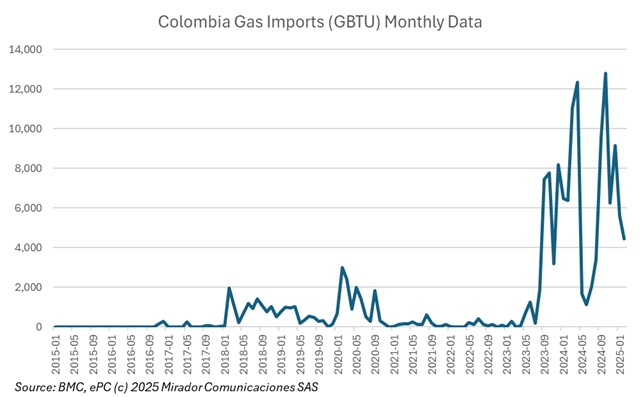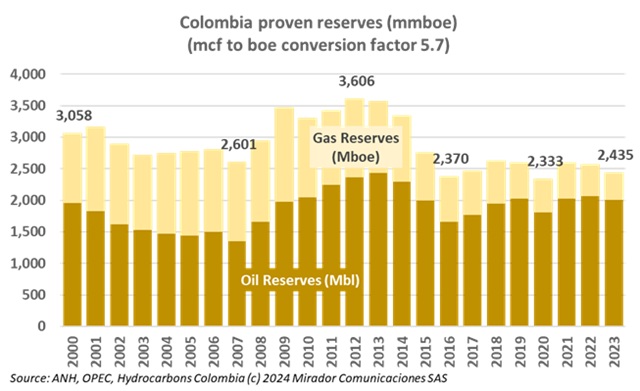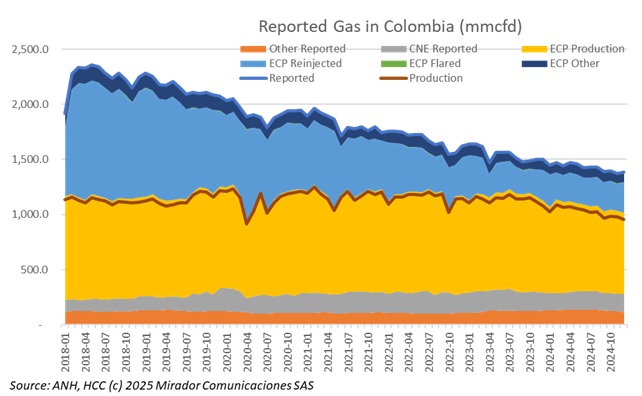The Colombian government’s recent discussions about importing gas from Qatar have sparked debate among energy experts. Some argue that this move implicitly acknowledges a gas shortage in the country.

Colombia’s inflation rose slightly in February, reaching an annual rate of 5.28%, according to data released by DANE.
For years, our editorial point of view was that importing gas was an unacceptable and unnecessary loss of energy sovereignty. We opposed building a second regas facility on the Pacific coast saying that the resources should be directed to encouraging domestic gas development. But, now, pragmatism means we have to modify our position.

Investment in gas exploration in Colombia has declined, and incentives for drilling new wells have been limited.
Ecopetrol (NYSE: EC) has taken a strategic step to strengthen the country’s natural gas supply amid shortages and rising service costs.
President Gustavo Petro announced that Ecopetrol (NYSE: EC) will take charge of gas imports and purchase supplies from Qatar at “reasonable prices” in response to rising energy tariffs in Colombia.

The ANH has published detailed gas production results for 2024 and we can now see who the “winners and losers” were. We also look at MinEnergia’s recent statements that “there is enough gas”, with no need for imports.
As soon as Colombia’s gas tariff crisis erupted, the Energy and Gas Regulatory Commission (CREG) issued Resolution 102 015, aimed at providing flexibility in contracts between producers and marketers starting in June 2025.
Tomás González, former Minister of Mines and Energy and director of the Regional Center for Energy Studies (CREE) raised concerns about the future of natural gas supply in Colombia.
Ecopetrol (NYSE: EC) is set to increase its natural gas import capacity next year to counteract Colombia’s dwindling reserves.